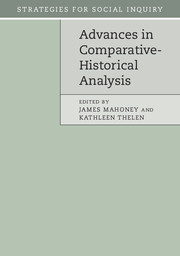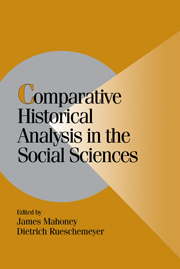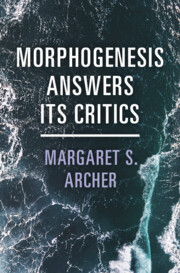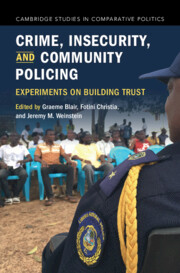Advances in Comparative-Historical Analysis
Against the backdrop of an explosion of interest in new techniques for data collection and theory testing, this volume provides a fresh programmatic statement about comparative-historical analysis. It examines the advances and distinctive contributions that CHA has made to theory generation and the explanation of large-scale outcomes that newer approaches often regard as empirically intractable. An introductory essay locates the sources of CHA's enduring influence in core characteristics that distinguish this approach, such as its attention to process and its commitment to empirically grounded, deep case-based research. Subsequent chapters explore broad research programs inspired by CHA work, new analytic tools for studying temporal processes and institutional dynamics, and recent methodological tools for analyzing sequences and for combining CHA work with other approaches. This volume is essential reading for scholars seeking to learn about the sources of CHA's enduring influence and its contemporary analytical and methodological techniques.
- Provides a fresh programmatic statement of the advantages of comparative-historical research
- Situates comparative-historical research in relation to new debates about experimental methods and other recent developments in the discipline
- Showcases recent advances and new tools in comparative-historical analysis
Product details
August 2015Paperback
9781107525634
322 pages
240 × 175 × 15 mm
0.65kg
3 b/w illus. 4 tables
Available
Table of Contents
- Part I. Introduction:
- 1. Comparative-historical analysis in contemporary political science Kathleen Thelen and James Mahoney
- Part II. Agenda-Setting Work:
- 2. The developmental state is dead: long live the developmental state! Stephan Haggard
- 3. Coalitions, policies, and distribution: Esping-Andersen's three worlds of welfare capitalism Jane Gingrich
- 4. Not just what but when (and how): comparative-historical approaches to authoritarian durability Steven Levitsky and Lucan A. Way
- Part III. Tools for Temporal Analysis:
- 5. Power and path dependence Paul Pierson
- 6. Critical junctures and institutional change Giovanni Capoccia
- 7. Drift and conversion: hidden faces of institutional change Jacob S. Hacker, Paul Pierson and Kathleen Thelen
- Part IV. Issues of Method:
- 8. The comparative sequential method Tulia G. Falleti and James Mahoney
- 9. Nested analysis: towards the integration of comparative-historical analysis with other social science methods Evan S. Lieberman
- Epilogue: comparative-historical analysis: past, present, future Wolfgang Streeck.







